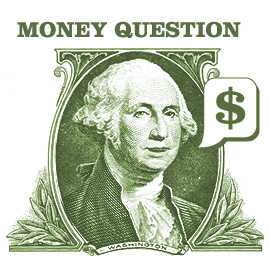- What is my outstanding debt?
- What is the interest rate on my debt?
- Do I have an emergency savings fund that is sufficiently funded?
- Do I have any big purchases or expenses in the next 5 years?
- How much am I contributing to my 401k or IRA fund?
Tuesday, January 15, 2008
Are you ready to begin investing?
Posted by
K. P. Chadwick
on
Tuesday, January 15, 2008
0
comments
![]()
![]()
Labels: Investing, Personal Finance
Add to Del.icio.us Stumble it!Monday, January 14, 2008
Steroids and HGH likely a bigger problem in Hollywood
 This post goes under the etc. category, but I couldn't help but comment. I've been saying to my friends for a while now that probably everyone in Hollywood and every male model probably uses or has used HGH and/or steroids. Considering all the competition to look great, how could they not be using something that keeps them lean and fit and employed? It has been pretty obvious for a while now, where it seems like everywhere you look there is some new buff B-list celebrity or model. It's not like they are ever going to drug test entertainers. Eight months ago Sylvester Stallone was busted with HGH in Australia and maybe Japan. Now a report out that many musicians are linked to it. I don't really think the average musician has the time or discipline to be sculpting the perfect body, but yet there is a disproportionate number of them in music videos. Now it seems even some women musicians like Mary J. Blige are in on it. Eventually it is going to become a big scandal in the entertainment world, but one with far less impact and consequences than in sports.
This post goes under the etc. category, but I couldn't help but comment. I've been saying to my friends for a while now that probably everyone in Hollywood and every male model probably uses or has used HGH and/or steroids. Considering all the competition to look great, how could they not be using something that keeps them lean and fit and employed? It has been pretty obvious for a while now, where it seems like everywhere you look there is some new buff B-list celebrity or model. It's not like they are ever going to drug test entertainers. Eight months ago Sylvester Stallone was busted with HGH in Australia and maybe Japan. Now a report out that many musicians are linked to it. I don't really think the average musician has the time or discipline to be sculpting the perfect body, but yet there is a disproportionate number of them in music videos. Now it seems even some women musicians like Mary J. Blige are in on it. Eventually it is going to become a big scandal in the entertainment world, but one with far less impact and consequences than in sports.
Posted by
K. P. Chadwick
on
Monday, January 14, 2008
1 comments
![]()
![]()
Labels: drugs, entertainment, HGH, Hollywood, Steroids
Add to Del.icio.us Stumble it!Sunday, January 13, 2008
Bob Brinker MoneyTalk Commentary 1/5/08-1/6/08
Bob spoke a lot about real estate this weekend. I think one interesting discussion point worth mentioning here is how to evaluate investing in rental properties vs. investing in mutual funds (or any other investment).
Bob said he likes to use cash on cash to calculate return. He didn't quite go into all the details and seemed to assume the property was payed off. Your total return is calculated by first estimating the starting value and final value of the equity in the property. Second, determine the yearly cash flow of the property, income - all expenses (mortgage, maintenance, insurance, taxes, etc.).
The return on equity for the year would simply be (final equity - starting equity)/(starting equity)=x
Note that the final equity would be a factor of appreciation and repayment of principle
The return on income would be (income - expenses)/(starting equity)=y
Total return = x + y
You can now compare the return to an investment in a mutual fund. This may seem pretty obvious, but the trap people often fall into when evaluating, is that they'll use their initial down payment on the property as a reference point. Since the purchase was highly leveraged, they'll look at the return on that down payment. In actuality, they should assume they would be swapping the cash value of the house (equity) for a mutual fund and comparing the return on that. Quite often one will find that the equity appreciation has outpaced the rental income and you can actually do much better cashing out and reinvesting in something else, especially if you factor in the management time involved with being a landlord.
Posted by
K. P. Chadwick
on
Sunday, January 13, 2008
0
comments
![]()
![]()
Labels: Bob Brinker, Investing, MoneyTalk, Personal Finance, Real Estate, Rental Properties
Add to Del.icio.us Stumble it!
 Earn making loans
Earn making loans $25 Bonus for opening an ING savings account!
$25 Bonus for opening an ING savings account!